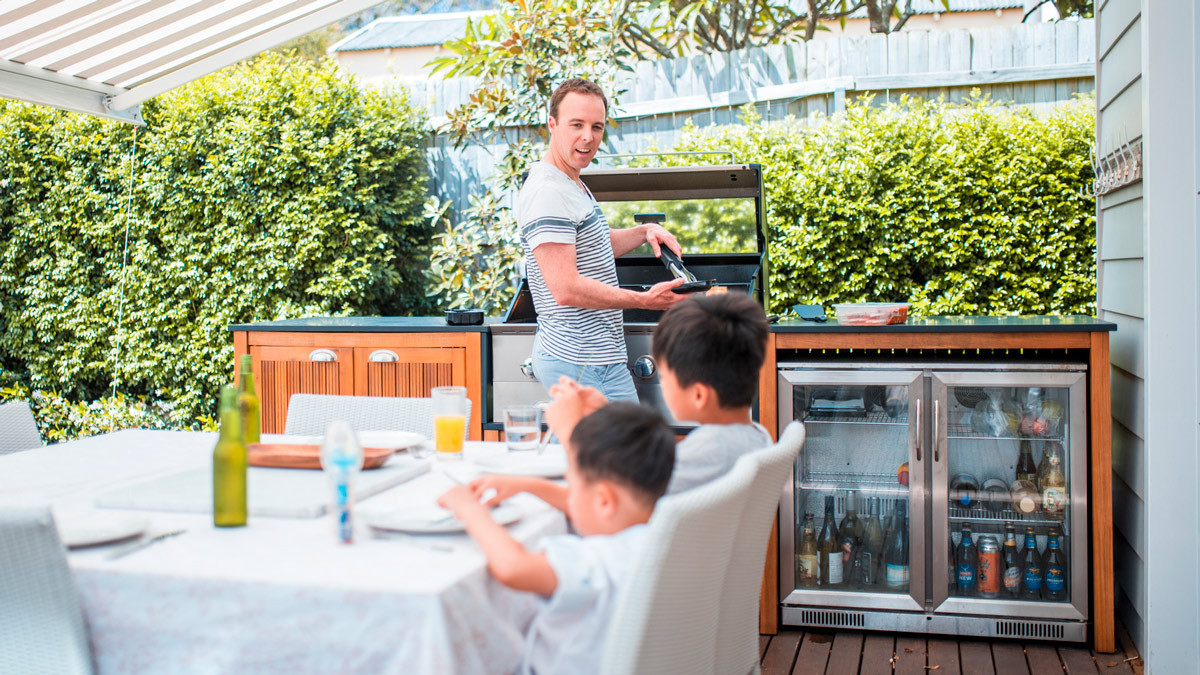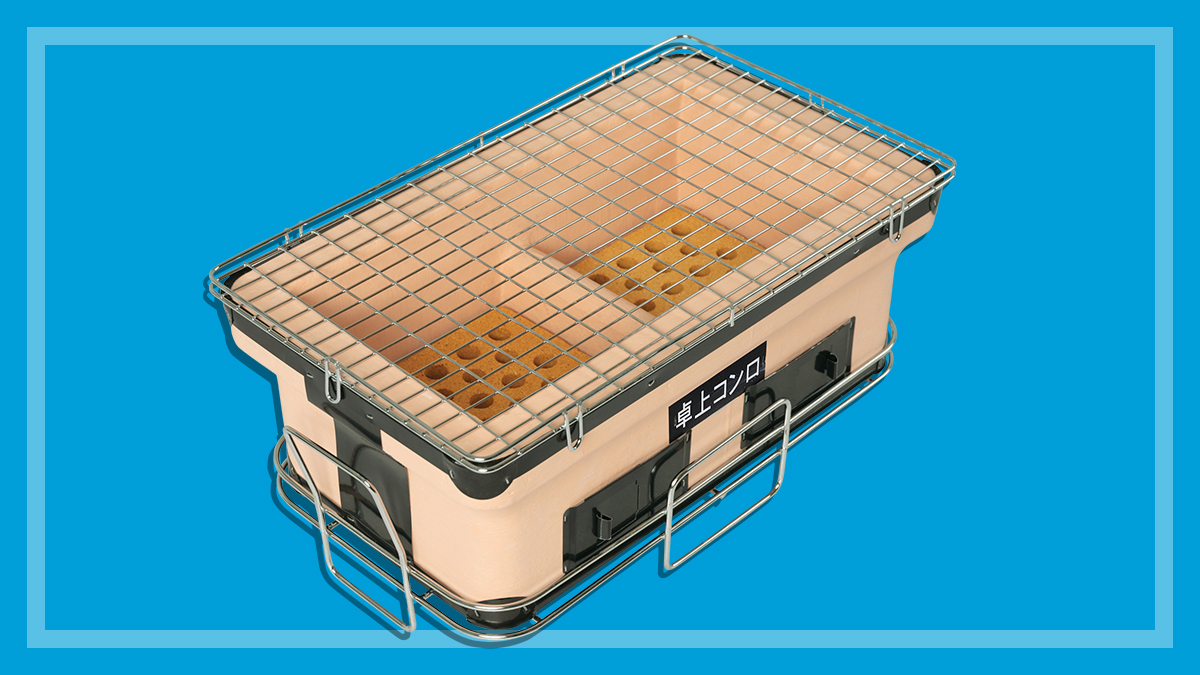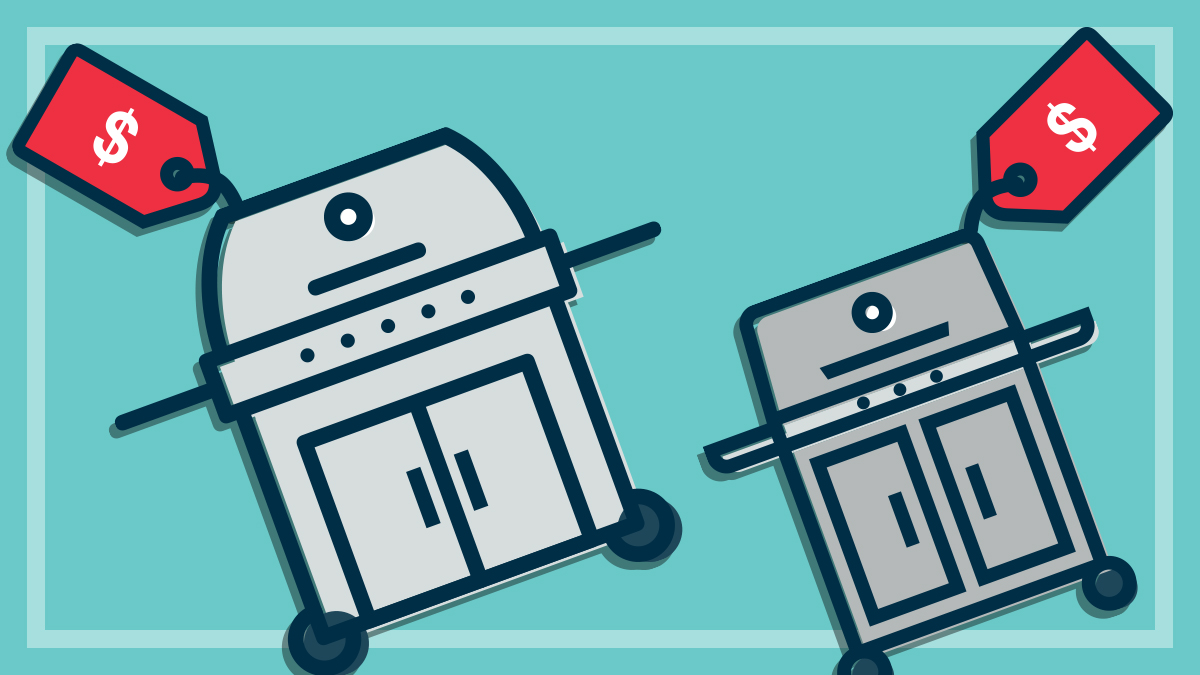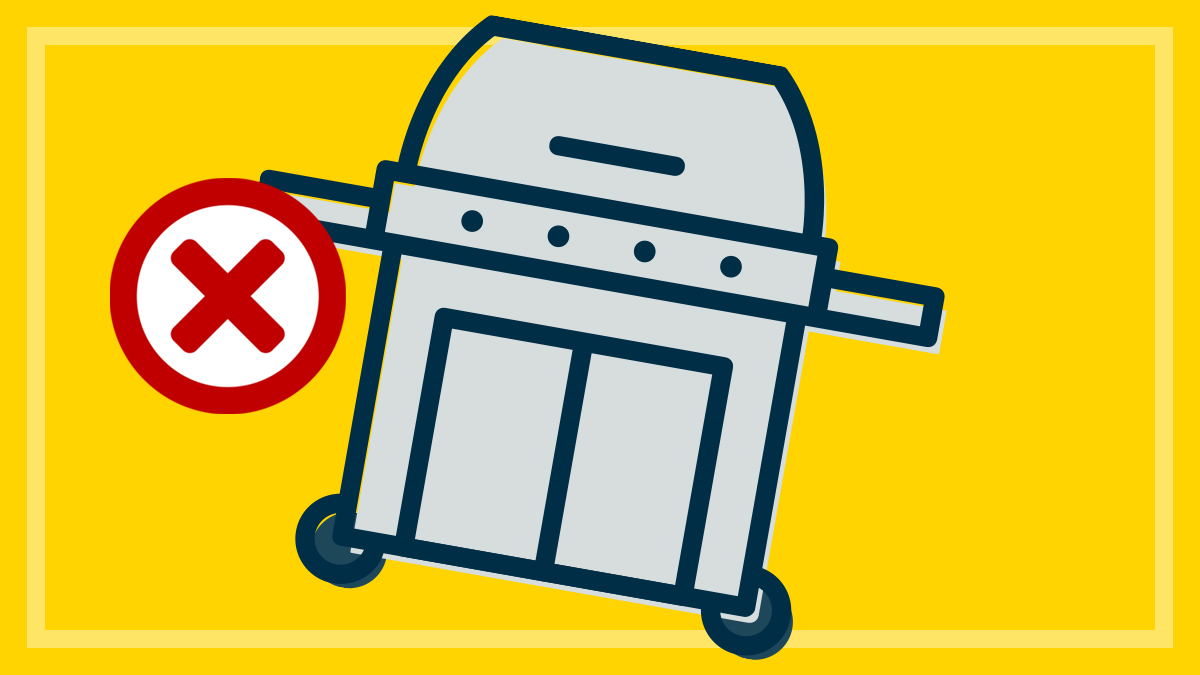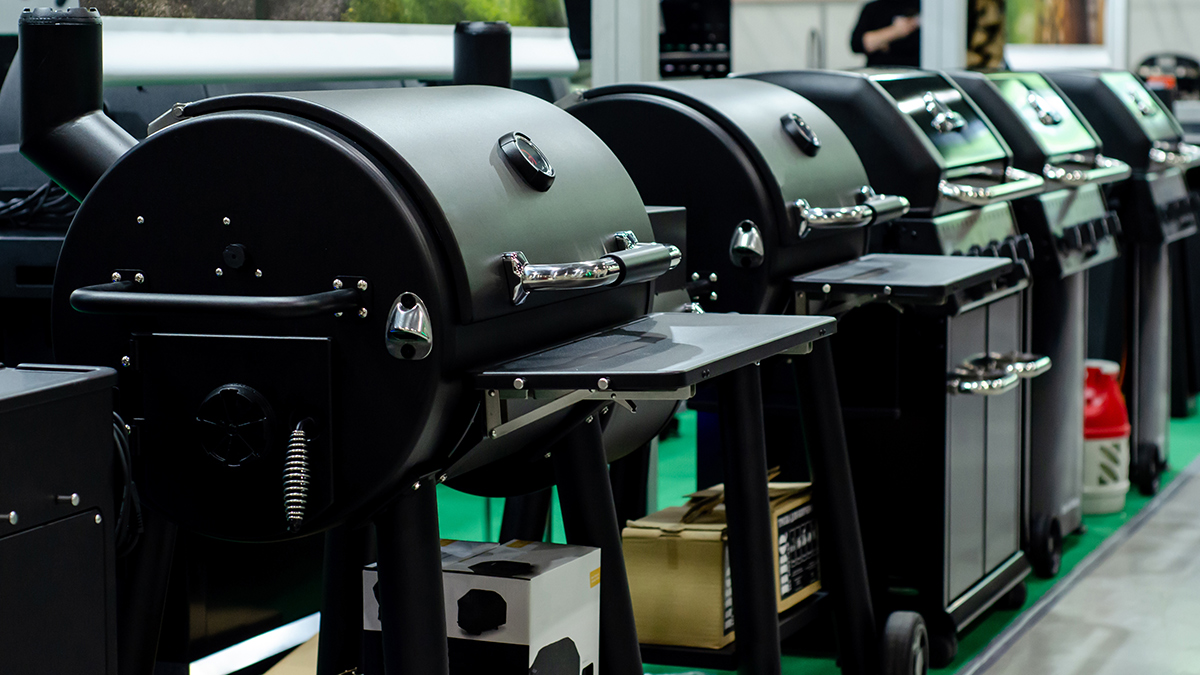Get our independent lab tests, expert reviews and honest advice.
5 BBQ blunders you probably don’t know you’re making – and what to do instead
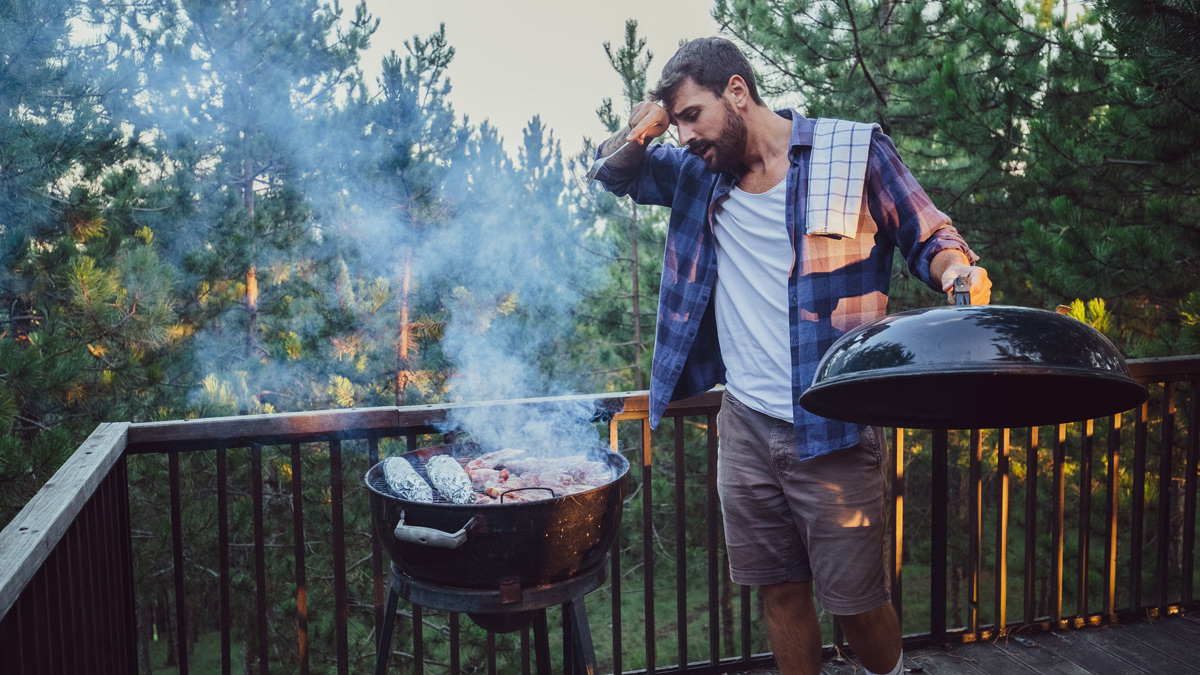
Put even the most ho-hum home cook in front of a barbecue and suddenly they’re full of barbie bravado; a tong-clicking, steak-flipping grill master whose technique can’t be faulted.
But there’s always room for improvement, and even a chef who’s all griller, no filler will probably have some less-than-ideal barbecue habits that they’d do well to ditch.
Here are five barbecue no-nos you should avoid, and the good habits to adopt instead.
1. Taking your meat straight from the fridge to the barbecue
BBQ better: Bring meat to room temp before cooking.
We’re all familiar with that quintessentially Australian sensation of stepping out of a cool swimming pool in bare feet onto hot concrete – you know the feeling, right?
Well, it’s the same for meat. Pull it out of the fridge and straight onto a hot barbecue and it’ll tense up, leaving you with tough meat.
Instead, take it out of the fridge at least 30 minutes before you plan to cook it so it comes to room temperature. It’ll give that expensive steak a chance to be the best it can be.
Just be mindful of food safety and don’t leave raw meat out of the fridge for too long.
2. Winging it and hoping your meat is cooked
BBQ better: Use a meat thermometer.
Speaking of food safety, investing in a meat thermometer is essential to ensuring your barbecue meat is cooked properly so it’s safe to eat.
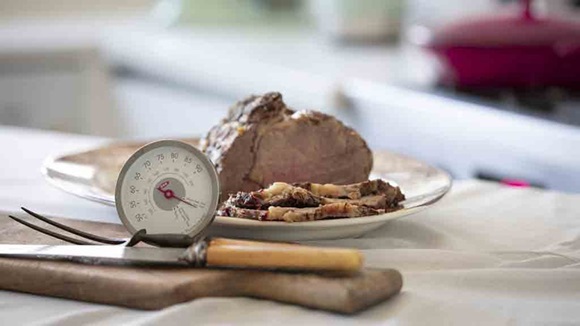
But it’s not just for keeping salmonella and other nasties at bay: it’s the key to perfectly cooked meat, every time.
Even if you’re confident in your ability to eyeball a steak to tell its doneness, a meat thermometer takes the guesswork out of cooking so you won’t accidentally serve up boot leather instead of a medium rare sirloin.
If you want to get extra fancy, you can even buy a digital temperature probe that connects to an app on your phone so you’ll get an alert when your meat is ready.
CHOICE tip: Try to limit the number of times you turn your food. Each time you flip the meat, it loses juices. Fewer turns means more succulent meat.
Safe cooking temperatures
Use a meat thermometer for safely and perfectly cooked food
Well done (red meat): 77 degrees celsius
Minced, rolled or stuffed meat; leftovers; poultry; liver: 75 degrees celsius
Eggs and egg dishes: 72 degrees celsius
Medium (red meat): 71 degrees celsius
Pork roasts and whole cuts: 70 degrees celsius
Fish: 69 degrees celsius
Medium rare (red meat): 63 degrees celsius
Take the temperature in the thickest part of the food, as close to the centre as possible.
Make sure the thermometer doesn’t touch bone, gristle or fat – these will give a false reading.
3. Opening the hood all the time to check your food
BBQ better: Be patient and use a meat thermometer
The barbecue hood isn’t there just to hide a grubby hotplate when you’re finished cooking – putting the hood down can make your barbecue more versatile.
Closing the lid effectively turns your barbie into an oven, which means you can cook so much more on it. It’ll also speed up your cooking time, make your food juicier and minimise flare-ups.
If you’re a nervous cook, you’ll probably be tempted to peek under the hood regularly to make sure you haven’t overdone your food, and even experienced cooks can’t help getting a sneak preview of dinner. But if you can resist the temptation your food will cook faster and better.
Heat escapes each time you open the hood, slowing down the cooking process
Heat escapes each time you open the hood, slowing down the cooking process.
That’s where a Bluetooth-connected meat thermometer comes into its own: you can check the internal temperature of the meat without having to open the lid and lose all that heat.
If you don’t have a high-tech thermometer, it’s still best to keep opening the hood to a minimum so your barbecue can maintain an even temperature.
If you’re a serial hood-opener, you could solve the problem by going for a barbecue that has a window in the hood so you can see what’s going on without compromising your cook-up.
CHOICE tip: Don’t forget to preheat your barbecue for at least 10 minutes on medium-high with the hood closed. Meat needs to sear to seal in the juices, so your barbie needs to be hot before you start cooking.
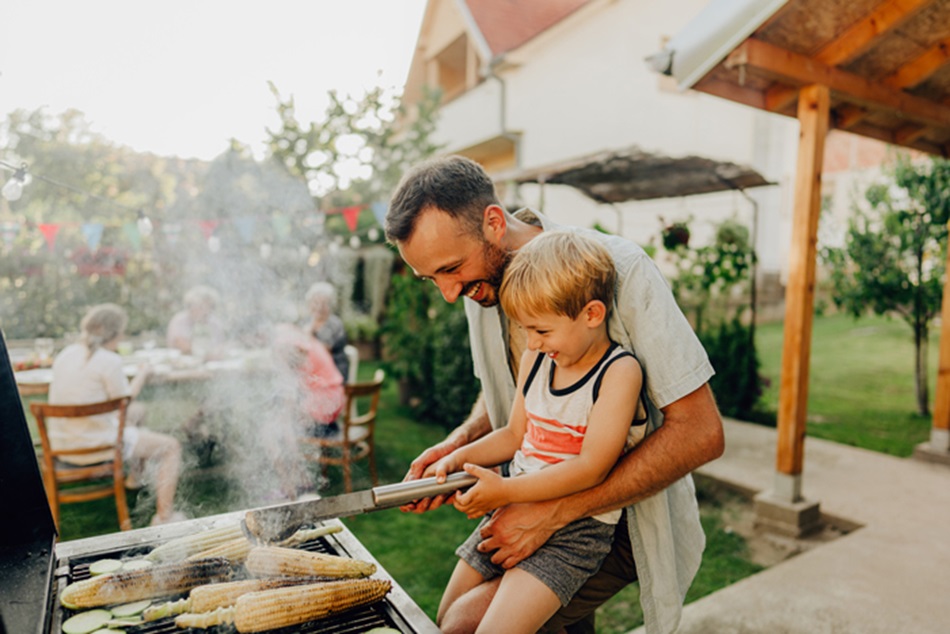
4. Only cooking steak and sausages
BBQ better: Experiment with different types of food and cooking styles
A barbecued snag is hard to beat, but there’s more to barbecuing than just bangers and beef.
Now that you know how to use your barbecue’s hood to create an outdoor oven, the sky’s the limit in terms of what you can cook – think whole fish, roasts, ribs, veggies and more.
Indirect cooking allows you to cook ‘low and slow’ to give you that succulent slow-cooked flavour
And barbecuing doesn’t have to be just about flame grilling. Ever heard of indirect cooking? It’s a great technique for slow-cooking tougher cuts that would otherwise burn or become tough if you grilled them, and for roasting larger cuts of meat like roasts or whole chickens.
Indirect cooking allows you to cook ‘low and slow’ to give you that succulent slow-cooked flavour, or you can use it in the same way as an oven to roast food.
For a four-burner barbecue, turn on the outside burners and put the meat on a tray in the middle of the grill away from the flames. You can use a roasting rack inside the tray with some water in the bottom to keep the meat from drying out.
Check out CHOICE kitchen expert Fiona Mair‘s recipe for brining and dry rubbing larger cuts of meat in our expert barbecue tips.
5. Forgetting to clean your barbecue
BBQ better: Make cleaning a habit.
The urban myth that says a dirty barbecue grill adds more flavour does have some truth to it – to a point.
Your grill does need a coating of oil to protect it from the elements, but if you don’t clean the barbecue at all after cooking, your next meal could taste like rancid old sausage fat. And a grubby grill could even attract cockroaches and flies – not the kind of dinner guests you want to encourage.
The best time to clean your barbecue is immediately after cooking
While you’re probably keen to crack on with enjoying the fruits (or rather meats) of your labour, the best time to clean your barbecue is immediately after cooking. The longer you leave it, the harder it will be to scrape off that excess fat and crusted-on marinade.
And since it’s good practice to rest your meat after cooking (5–10 minutes for steaks; at least 20 minutes for roasts), you won’t miss out on the good stuff since you’ll have time to clean up before serving up.
Our tricks for keeping your barbecue clean will make the process as easy and painless as possible so you can focus on maximising your chill instead of cleaning your grill.


